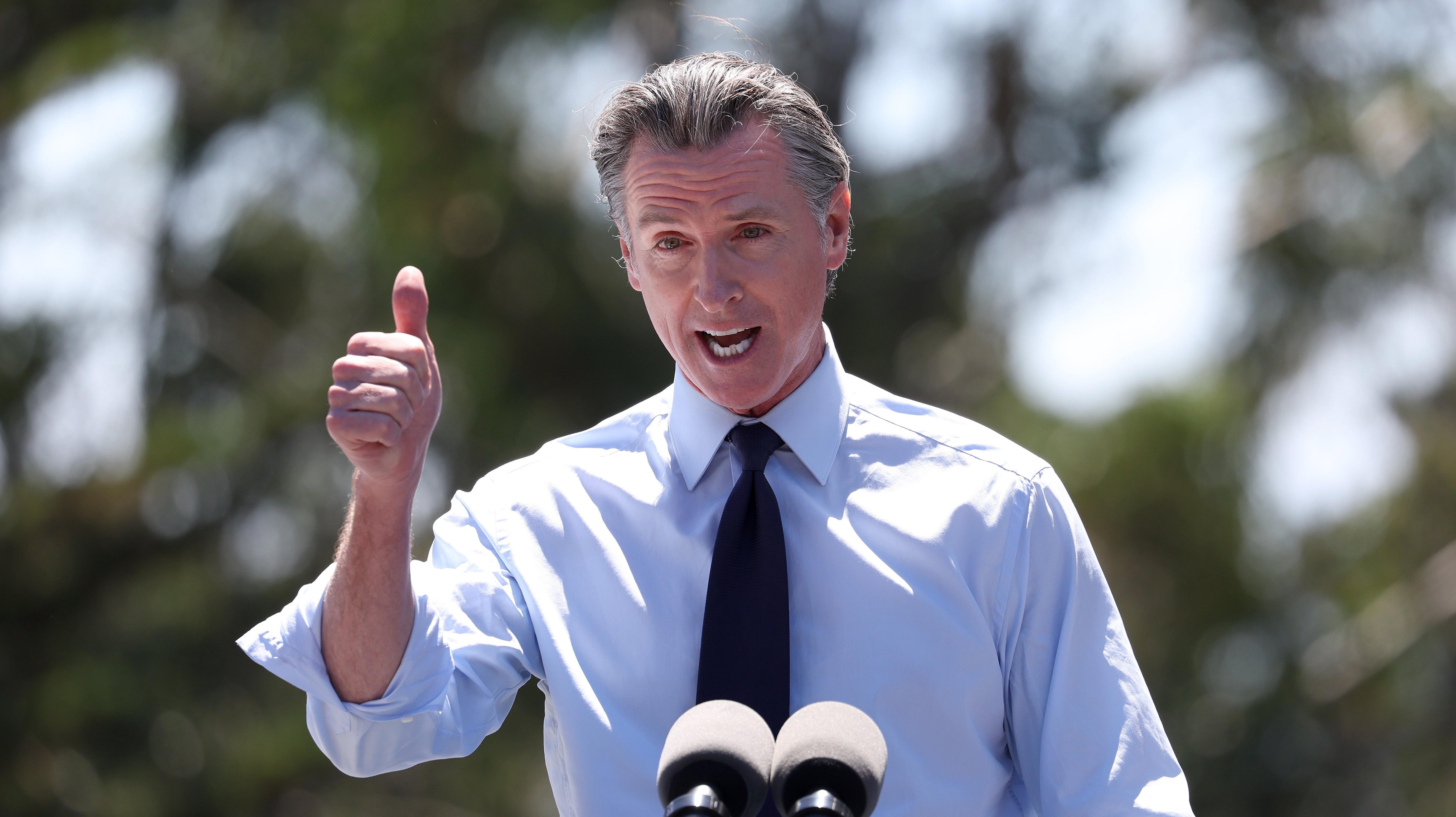California moves to block use of rap lyrics as incriminating evidence in court
Accompanied by rappers Killer Mike and Meek Mill, California governor Gavin Newsom okayed a law today that curtails the use of rap lyrics as "evidence"

Accompanied (virtually) by rappers Killer Mike, Meek Mill, Too $hort, Ty Dolla $ign, YG, E-40, and Tyga, California governor Gavin Newsom signed a new bill into law today, curtailing the use of rap lyrics as evidence in criminal cases in the state. That’s in contravention of a pretty standard tactic used in court cases against musicians, and especially Black musicians, where lyrics focused on illegal activities—delivered, like much of rap, in first person, and from an adopted persona—get trotted out in court as though they’re some sort of poorly thought out musical confession to actual crimes.
Case in point: The recent RICO indictment (in Georgia, mind you, not California) against rappers Young Thug and Gunna, where lyrics from the two performers’ musical careers were entered into evidence against them. We’re not qualified to report on the specifics of the actual case, mind you, but we’re pretty sure that Johnny Cash was never asked to answer, in a court of law, for that time he confessed to shooting a man in Reno for the cruel and frivolous reason of merely wishing to watch him die.
The California law in question carries the title the The Decriminalizing Artistic Expression Act, and was pushed for in part by the Black Music Action Coalition, which is also stumping for federal legislation to achieve similar purposes on a national scale. Per BMAC co-chair Willie Stiggers, “The signing of AB 2799 (The Decriminalizing Artistic Expression Act) into California law is a huge victory for the artistic and creative community, and a big step in the right direction towards our federal legislation – The RAP Act (Restoring Artistic Protection Act) – preventing the use of lyrics as the sole basis to prosecute cases. The Black Music Action Coalition applauds Governor Newsom for his willingness to stand with Artists and defend our First Amendment right to freedom of speech.”